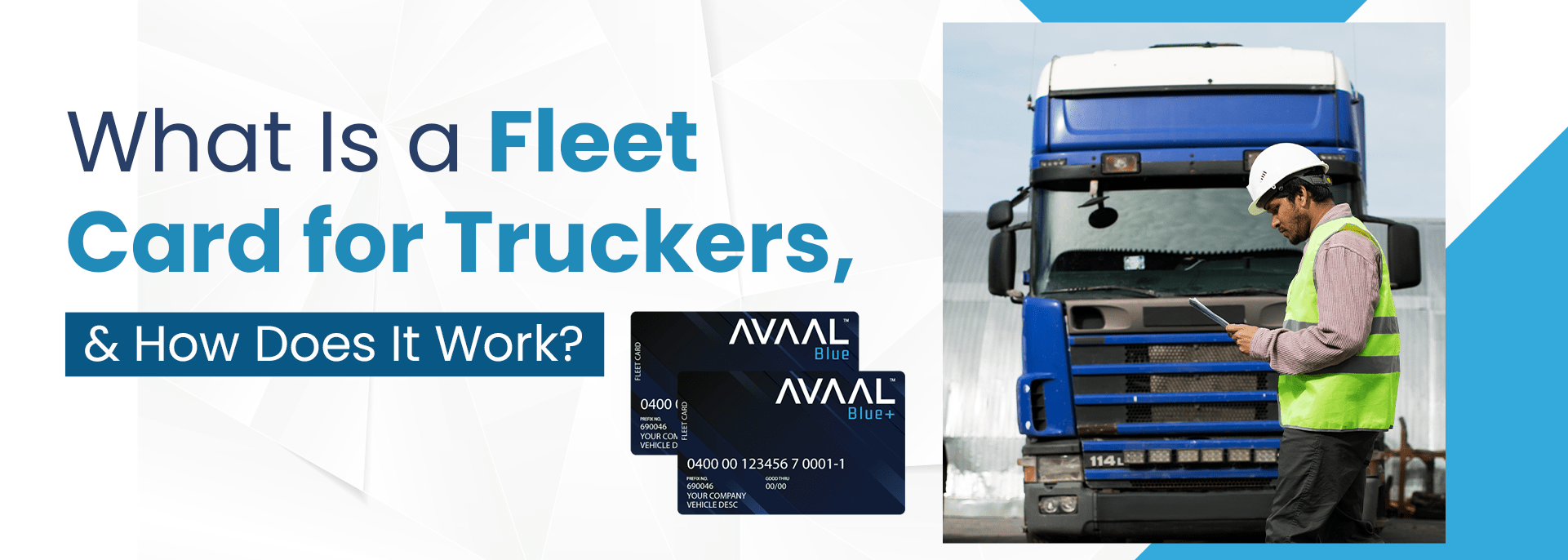What Is a Fleet Card for Truckers, and How Does It Work?
In today’s competitive trucking industry, efficient fuel management and cost control are crucial for maintaining profitability. One tool that has become indispensable for trucking companies, owner-operators, and logistics managers is the fleet card — often called a fuel card.
But what exactly is a fleet card for truckers, and how does it work?
What Is a Fleet Card?
A fleet card is a payment card that allows truck drivers and fleet managers to purchase fuel and other vehicle-related services such as maintenance, roadside assistance, or tolls — all while giving the business greater control over expenses.
Think of it as a business-specific credit card but with extra features tailored to trucking companies, including:
- Fuel discounts
- Purchase controls
- Real-time tracking
- Centralized billing
- Tax-compliant reporting
Fleet cards are issued by fuel companies, third-party payment providers, and financial institutions, each offering different perks, coverage, and pricing models.
How Does a Fleet Card Work?
Here is a step-by-step breakdown of how a typical fleet card works for truckers:
1. Card Issuance
A trucking company applies for a fleet card program. Depending on the provider, you can request individual cards for each driver or each vehicle. The cards are usually PIN-protected for added security.
2. Usage at Fuel Stations
Drivers swipe the card at approved fuel stations. Some fleet cards work only within a specific network (e.g., Petro-Canada, Esso, Shell), while others are broader in acceptance across thousands of gas stations in Canada and the U.S.
3. Purchase Restrictions
Fleet managers can customize card usage by:
- Setting limits on fuel types (e.g., diesel only)
- Restricting non-fuel purchases
- Controlling usage by day or time
- Requiring odometer readings at the pump
4. Real-Time Monitoring
Every transaction is logged in real-time through an online dashboard. Fleet owners can monitor purchases by:
- Driver
- Location
- Time
- Fuel volume
This helps identify irregularities and prevent misuse or fraud.
5. Monthly Reporting & Billing
Instead of handling multiple receipts and reimbursements, fleet card providers send consolidated invoices, often organized by truck or driver. This simplifies accounting, budgeting, and fuel tax reporting (including IFTA).
Key Benefits of Using a Fleet Card for Truckers
Fleet cards do more than pay for gas. They provide strategic benefits to help you operate more efficiently and profitably.
1. Fuel Cost Savings
Most fleet cards offer discounts per litre, which may vary by fuel provider, volume, or payment terms. Even a few cents per litre can save thousands annually for high-mileage operations.
2. Expense Control
Fleet cards help companies eliminate unauthorized spending, track every transaction, and monitor fuel budgets by restricting purchases and setting limits.
3. Convenience for Drivers
Drivers no longer need to pay out-of-pocket and submit receipts. Everything is handled through the card, reducing administrative overhead and eliminating reimbursement delays.
4. Improved Cash Flow
Fleet card providers usually offer flexible payment terms, which helps trucking companies manage cash flow and avoid short-term liquidity issues.
5. Simplified IFTA Reporting
For Canadian truckers crossing provincial or U.S. borders, fleet cards automatically track fuel purchases by jurisdiction, making quarterly IFTA tax filings much easier and more accurate.
6. Preventing Fraud
Fleet cards significantly reduce the risk of Fraud or theft by offering PIN protection, real-time alerts, and customizable rules.
Common Types of Fleet Cards
There are generally two categories of fleet cards:
1. Branded Fleet Cards
These cards are issued by specific fuel companies (e.g., Petro-Canada SuperPass, Esso Business Card). They offer great discounts at in-network locations but limited acceptance outside their system.
Pros:
- Substantial discounts within the brand
- Loyalty rewards and promos
Cons:
- Limited station flexibility
2. Universal Fleet Cards
These cards are issued by third-party providers (e.g., WEX, Shell Fleet Navigator, Fleetcor) and are accepted at multiple fuel brands across Canada and the U.S.
Pros:
- Broad acceptance
- Better for long-haul trucking
Cons:
- Discounts may be lower than branded cards
Key Features to Look for in a Fleet Card
Not all fleet cards are created equal. When evaluating your options, consider the following features:
Fuel Discount Rates
Compare how much you save per litre and which stations offer the best deals.
Acceptance Network
Make sure the card is accepted at fuel stops along your main routes. Canada’s vast geography means access flexibility is key.
Spending Controls
Choose a provider that allows you to set card limits, block unauthorized purchases, and customize usage rules.
Online Portal or Mobile App
A user-friendly dashboard with real-time tracking, card controls, and downloadable reports makes management much easier.
Security Features
Look for PIN protection, fraud alerts, and the ability to lock or deactivate cards instantly.
Maintenance and Toll Payments
Some cards also cover truck maintenance, repairs, or toll expenses. This can be useful for companies looking to consolidate vehicle-related costs.
Customer Support
Reliable 24/7 support ensures you get help when needed — significant for long-haul drivers who operate at all hours.
Who Should Use a Fleet Card?
Fleet cards are beneficial for:
- Owner-operators managing personal fuel expenses
- Small fleet owners with 2–20 trucks
- Large fleets with multiple drivers and dispatch centers
- Logistics companies that want centralized control
- Cross-border operators looking for easier IFTA compliance
How to Apply for a Fleet Card
The application process is usually simple:
- Choose a provider based on your business needs
- Submit a business application (with financial documents, if required)
- Customize cards for your vehicles/drivers
- Set spending rules and preferences
- Distribute cards and start using
Depending on the provider, approval can be instant or take a few days.
Final Thoughts: Is a Fleet Card Right for You?
If you are a trucker or fleet owner looking to:
- Lower fuel costs
- Track driver spending
- Simplify fuel tax reporting
- Prevent card misuse
- Manage cash flow more effectively
Then a fleet card is more than just a payment tool — it is a strategic asset.
With the right fleet card, your trucking business can operate more efficiently, stay compliant, and save thousands of dollars annually. Take the time to research options, ask for demos, and test a few cards before fully committing.
FAQs About Fleet Cards for Truckers
Q: Can I use a fleet card for non-fuel purchases?
A: Yes, depending on the provider. Some cards allow purchases for repairs, tolls, or even convenience store items — but you can restrict usage.
Q: Do fleet cards affect credit scores?
A: Some fleet cards require a credit check and may affect your business credit, especially if you default on payments. Others offer prepaid or no-credit-check options.
Q: Are there monthly fees for fleet cards?
A: Some providers charge monthly, transaction, or annual service fees. Always read the fine print before applying.
Q: What happens if a card is lost or stolen?
A: Most fleet cards offer immediate deactivation and fraud protection to prevent unauthorized use.


